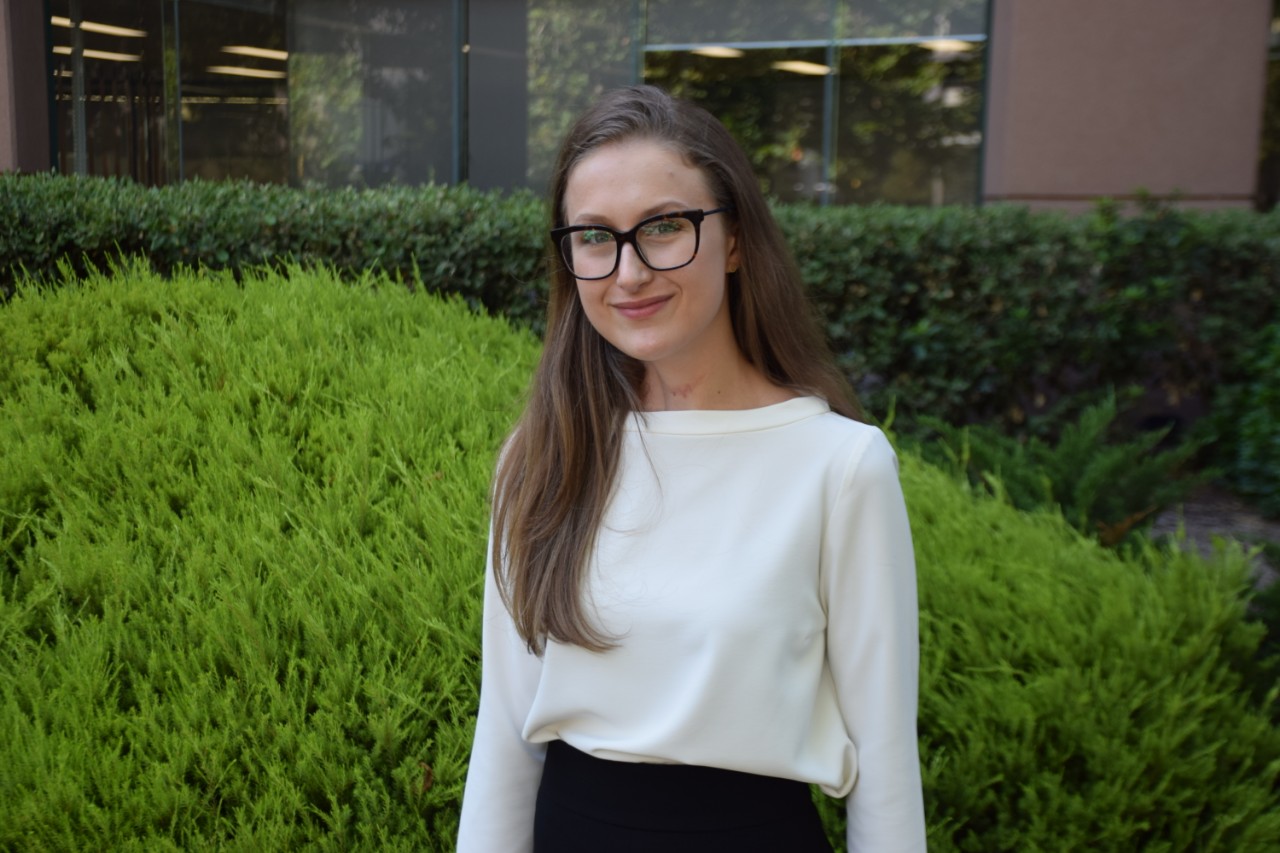 Vanessa Wilson, 2020 Melbourne Law School Intern at the McCabe Centre
Vanessa Wilson, 2020 Melbourne Law School Intern at the McCabe Centre
Twice a year, the McCabe Centre hosts students through the Melbourne Law School Public Interest Law Initiative Internship Program. The program allows law students to apply their knowledge practically, while making important contributions to our work for subject credit. We asked our latest intern, Vanessa Wilson, to share some of her experiences during her internship, her interests around law and cancer, and her aspirations for the future.
What motivated you to do an internship with the McCabe Centre?
There were three factors that motivated me to apply for the internship. Firstly, I developed a keen interest in how policy can be used to advance the social good while studying economics and politics in my undergraduate degree. Secondly, I decided to pursue a law degree given that the law is a particularly effective tool to advance such policies. Thirdly, I am a cancer survivor. As a patient, I was exposed to some of the inequalities in our health care system and became passionate about the need for reform so that everyone has equitable access to outstanding health care.
These interests combined perfectly in the McCabe Centre’s internship program. During my internship, I was able to deepen my understanding of how law can advance economic and public policies to prevent cancer, and how we can design laws to ensure that all those who are diagnosed with cancer have equitable access to treatment and supportive care.
Why are you interested in public health law?
Although most people can agree that public health objectives are a social good, public health is often not prioritised. Yet, everyone, at some point in their life, will be touched by a public health concern in one way or another.
Public health is a human rights issue, and public health objectives cannot be fully realised without law. The permanence of law promotes economic, social, and cultural change to ensure that people’s health outcomes are improved, and that equal access to relevant treatment and support is available to everyone who needs it.
What did you work on during your internship?
I worked on various areas of law in domestic, foreign, and international jurisdictions.
Notably, I examined the strength of France’s alcohol control law, the Loi Évin, and the lessons that can be learnt from how the industry, through lobbying and litigation, has undermined the law’s objectives and strength. In essence, this task delved into the tension between private interests and public health, how governments address (or fail to address) these tensions, and what this means for people’s lives.
Additionally, I explored frameworks for advance care directives in Australia’s various jurisdictions. The lack of uniformity across jurisdictions poses challenges for patients and health care practitioners alike as there is no consistent approach to ensuring that patients’ wishes regarding their end of life care are fulfilled.
What do you hope to do after uni?
I aspire to be a government lawyer or to pursue research. Fundamentally, I am interested in how law can make the society that we live in a better place. Being a government lawyer is important for ensuring that legislation withstands legal challenges and that we live in a society premised on the rule of law. Through legal research, we can explore what a better society might look like, and how to achieve a better society through law. My experience at the McCabe Centre affirmed my interest in both areas through the research I undertook on how law can be used to advance public policy.
Internships at the McCabe Centre are organised through our formal collaboration with Melbourne Law School. Students from Melbourne Law School interested in applying for an internship with the McCabe Centre can find more information about the opportunity here.